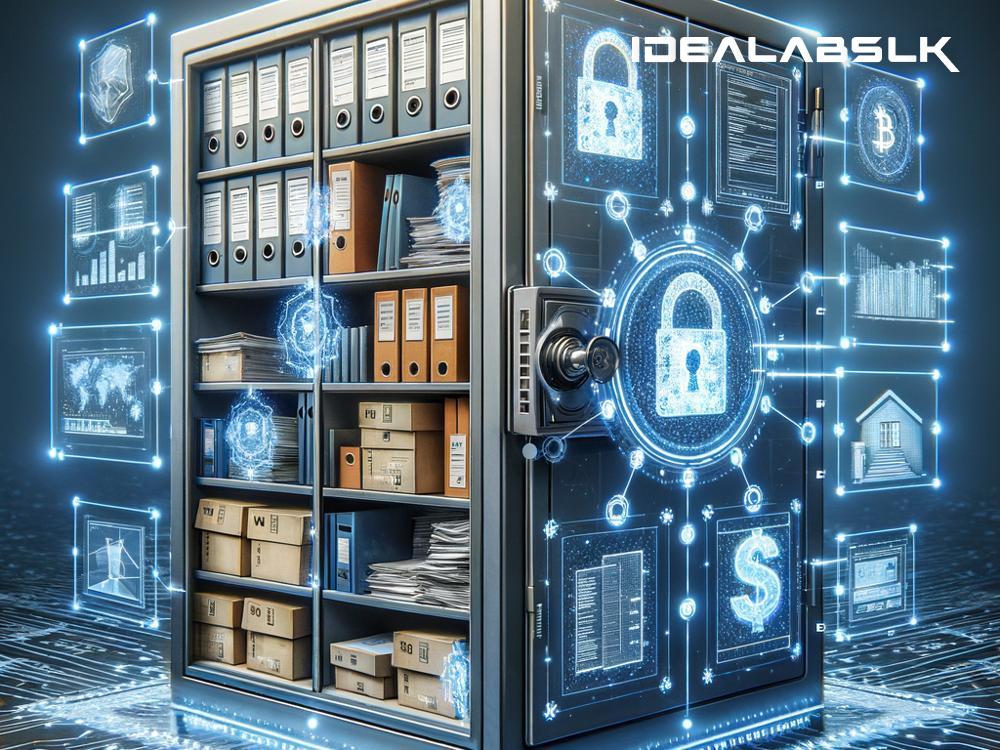Blockchain: A Revolution for Real Estate Data Confidentiality
In the fast-paced world we live in, technology is evolving at an incredible speed, bringing new solutions to age-old problems every day. One such remarkable innovation is blockchain technology, which is making strides in various sectors, including the real estate industry. With its capability to offer unparalleled data confidentiality, blockchain is revolutionizing how we handle and think about real estate data.
What is Blockchain?
Before diving into its benefits for the real estate sector, let's understand what blockchain is. Simply put, blockchain is a type of database that stores information in blocks that are then linked together in a chain. Once a block is filled with data, it's added to the chain, creating a chronological and secure data trail. Unlike traditional databases that store information in a centralized location, blockchain is decentralized, meaning the data is not stored in one single place. This nature of blockchain makes it highly secure and almost impossible to hack, as one would need to alter all the copies of the database simultaneously.
Why Real Estate?
The real estate industry deals with a ton of sensitive data, from personal information of buyers and sellers to intricate details about property transactions. Traditionally, this data has been managed through centralized systems, making it susceptible to hacking, fraud, and misuse. Moreover, the existing systems often lack transparency, making the transaction process slow and cumbersome for all parties involved.
The Role of Blockchain in Real Estate Data Confidentiality
Now, let’s explore how blockchain technology steps in as a game changer for ensuring data confidentiality in the real estate industry.
-
Decentralization: By storing data across its network, blockchain eliminates the central point of failure. This means that even if a hacker managed to breach one point, the rest of the data remains secure and intact. This decentralized nature significantly enhances the security and privacy of sensitive information.
-
Transparency and Trust: Although it may seem counterintuitive, blockchain’s transparency equates to increased confidentiality. Every transaction on the blockchain is visible to all participants but is encrypted and cannot be altered. This creates an environment of trust among parties, as they can confidently share information, knowing it cannot be tampered with or viewed by unauthorized parties.
-
Smart Contracts: Blockchain introduces "smart contracts," self-executing contracts with the terms directly written into code. These contracts automatically execute transactions when certain conditions are met, omitting the need for middlemen. This not only speeds up the process but also ensures that no sensitive information is mishandled or leaked during transactions.
-
Tokenization: Blockchain can turn real estate assets into digital tokens, representing ownership or a share in property. This process not only makes transactions smoother and quicker but also ensures confidentiality by encrypting owner information. Only relevant parties in a transaction can access this encrypted data, keeping it secure from unwanted eyes.
Real-World Applications and Benefits
The adoption of blockchain in real estate is not just theoretical. Several startups and established companies are already leveraging blockchain for various purposes, such as property listings, transaction history tracking, and secure payments. For instance, by using blockchain, real estate platforms are offering more transparent listings where every piece of information about a property can be verified on the blockchain. This not only helps in maintaining data integrity but also significantly reduces the chances of fraudulent listings.
Another notable application is in property management and leasing, where blockchain can store tenancy agreements, and maintenance records securely, ensuring that only authorized parties have access to this information. This system not only protects tenant and owner data but also streamlines the entire process, making it more efficient and less prone to errors.
The Future is Here
The adoption of blockchain technology in the real estate sector is still in its early stages, but its potential impact is vast. As more organizations start to understand the benefits of blockchain for enhancing data confidentiality, its adoption is likely to accelerate. The future of real estate transactions, powered by blockchain, promises a world where deals are not only more secure but also more transparent, efficient, and fair for everyone involved.
In conclusion, blockchain is not just a buzzword; it's a revolutionary technology that’s poised to transform the real estate industry by ensuring unparalleled data confidentiality. By embracing blockchain, the real estate sector can look forward to a future where transactions are not only secure but also more transparent and efficient.

